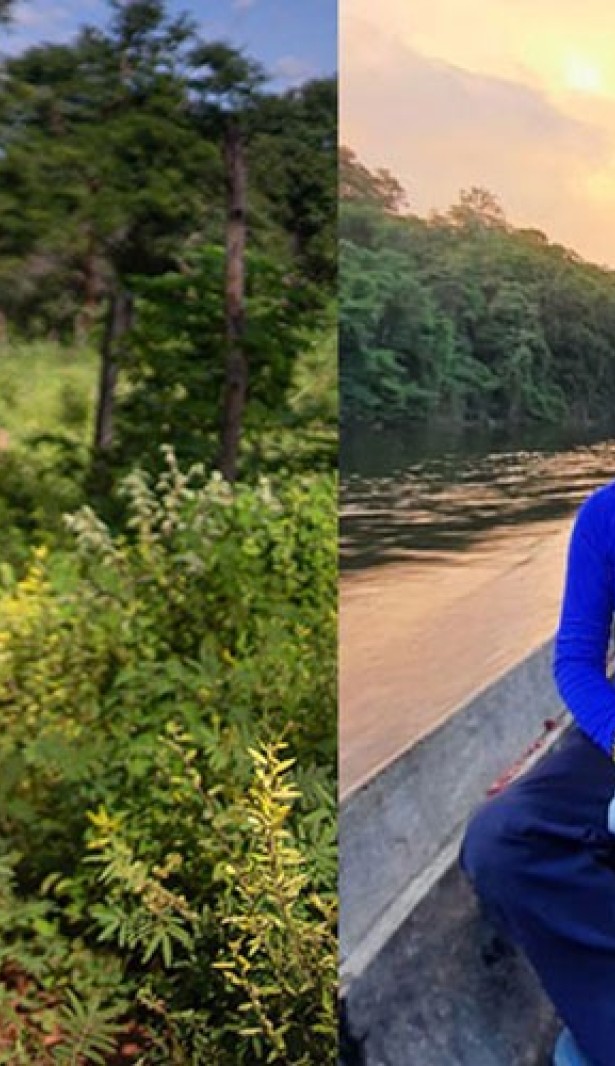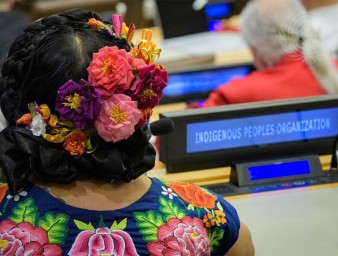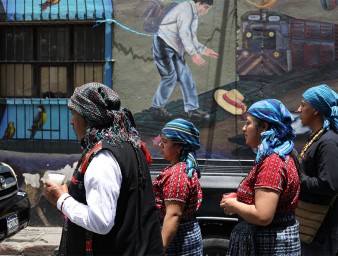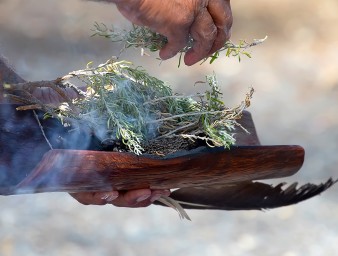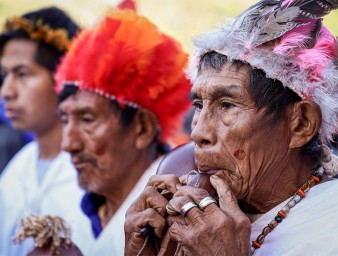Workshop on human rights helps indigenous people battle the pandemic
15 January 2021
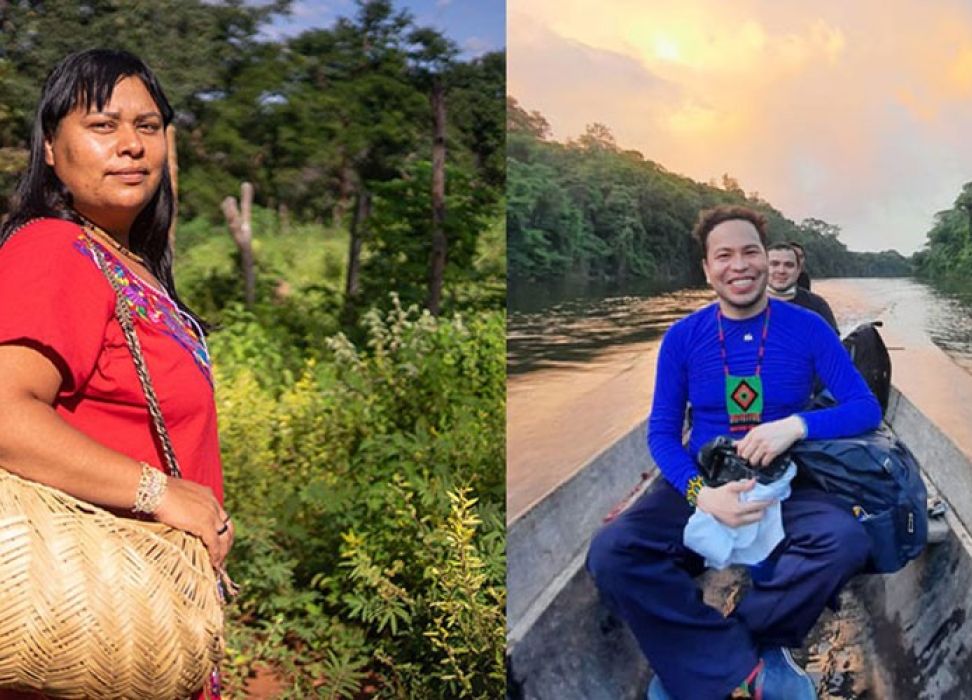
Indigenous people from several regions in Brazil took part in a workshop to help them better promote and protect their rights during the COVID-19 crisis. The workshop was led by UN Human Rights Senior Indigenous Fellows.
"Discussing human rights with indigenous peoples is a way to look for a vision of their better future ,” said Ro’ostitsina Xavante, a UN Human Rights Senior Indigenous Fellow in Brazil. ”It is also about the importance of knowing our own history. After all, who are we, indigenous or not, if we don't know and understand what happened to our predecessors?"
Ro’ostitsina Xavante made this comment about a workshop on human rights for indigenous leaders living in Brazil. The workshop, which she chaired with Alceu Karipuna, another Senior Indigenous Fellow, was a chance to promote and disseminate knowledge about the international human rights system for communities in Brazil.
“Learning more about the human rights protection system is a valuable opportunity for all of us,” Alceu Karipuna said. “In our country, countless indigenous communities are not able to access transport so they could attend such training programmes. Although this was a virtual dialogue, it allowed us to build a network for the study and strengthening of human rights with leaders from all over Brazil.”
The workshop presented information on international human rights mechanisms directly linked with the rights of indigenous peoples. It also presented practical information on accessing programs such as the United Nations Voluntary Fund for Indigenous Peoples to help highlight their specific issues and challenges.
Indigenous communities have had to fight for their rights for centuries, with the pandemic adding yet another challenge, said Jan Jarab, Head of the UN Human Rights Office Regional Office in South America.
“The pandemic has once again revealed the discrimination and violence they often suffer, and also profound gaps in their enjoyment of economic, social and cultural rights when compared to the rest of the population,” he said. ”Protecting their right to health, but also their other human rights must be a priority for governments, as well as implementing special measures and policies that take into consideration their distinctive characteristics and needs.”
Ro’ostitsina Xavante has experienced first-hand the challenges the pandemic has created for indigenous communities. She is a member of the Xavante people, which numbers around 20,000 living in the state of Mato Grosso in western Brazil, where 900 people have developed COVID-19 and 46 have died. She said the biggest challenge with the virus has been to combat misinformation, mainly coming from high-level public figures who still downplay the virus, as well as access to medical assistance, due to long distances from hospitals, and dwindling employment.
“It is vital to guarantee vaccines for all indigenous peoples, but also to provide support for their projects and to improve their activities,” she said. “Due to the pandemic, many families faced serious challenges to maintain their income.”
Yet, Alceu Karipuna, who is a member of the eponymous indigenous group from the state of Amapá, also said that amidst the suffering brought on by the pandemic, there has been a great evidence of solidarity.
“I have noticed collective ways of coping with the pandemic, as well as collective care initiatives based on the use of medicinal herbs, teas and infusions,” he said. “There has also been a traditional knowledge sharing actions, even among neighbouring communities, and exchanges for the production of traditional medicines.”
Jarab said that the workshop created by UN Human Rights Indigenous Fellows for the indigenous community highlights the practical importance of the programme: a chance to cascade and exchange knowledge.
“It has allowed us to enrich our activities with our fellows´ unique worldview and knowledge, enabling us to engage with indigenous individuals and organisations in a more culturally sensitive manner,” he said. ”We also welcome and support their enthusiasm to promote human rights-related activities for other indigenous communities and individuals.”
15 January 2021
